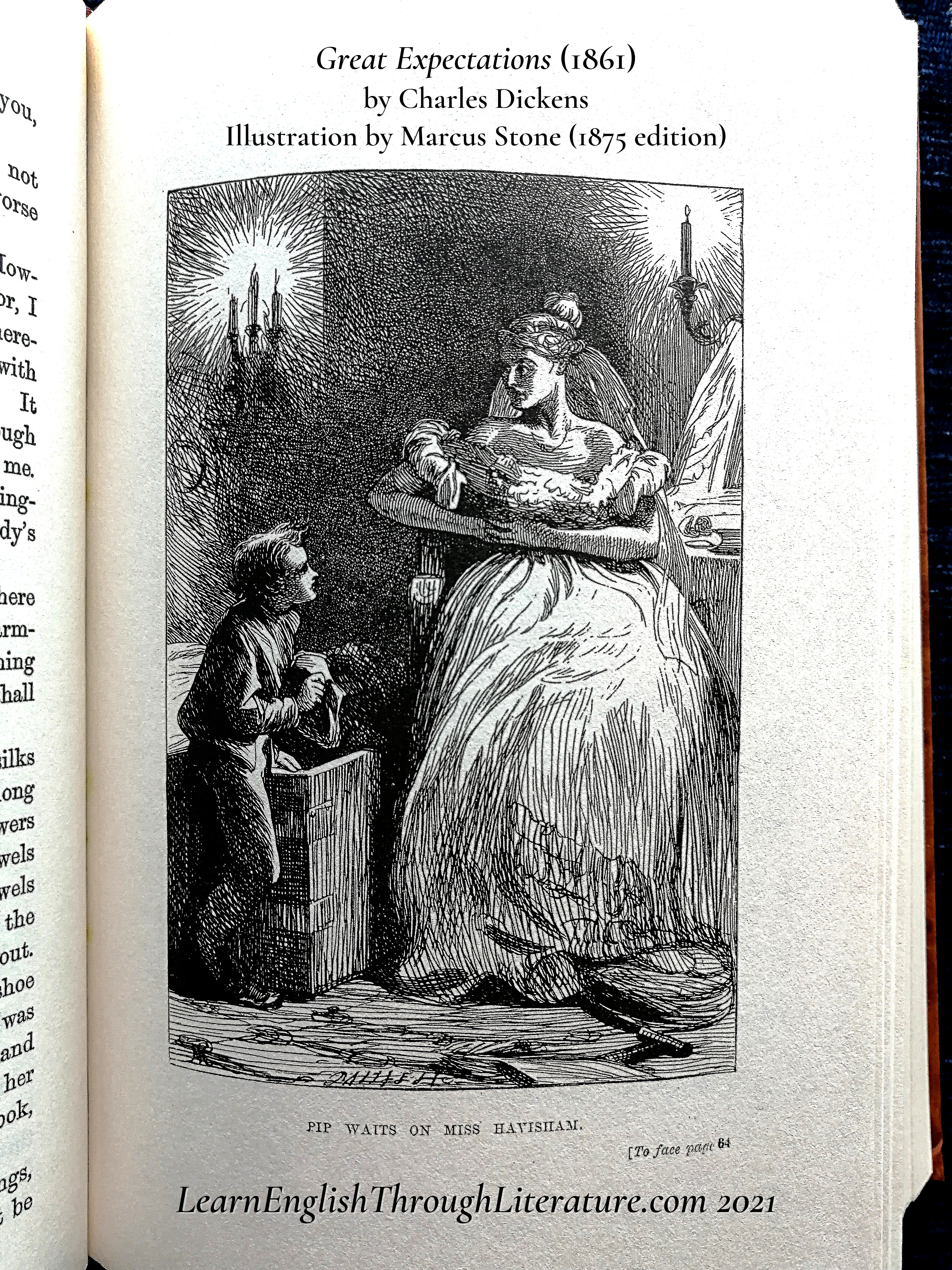📘 No; I should not have minded that, if they would only have left me alone. But they wouldn’t leave me alone. They seemed to think the opportunity lost, if they failed to point the conversation at me, every now and then, and stick the point into me. I might have been an unfortunate little bull in a Spanish arena, I got so smartingly touched up by these moral goads.
– Charles Dickens, Great Expectations (1861)
One of the most frequent questions that comes up for English language students, especially at intermediate level, is ‘when do you use ‘whether’ and when do you use ‘if’?’
😊 I am happy to say that the answer to this question is fairly straightforward, so with a little help from Charles Dickens (and plenty of good examples drawn from his most famous novel, Great Expectations) we will outline the differences and similarities of usage.
‘Whether’ and ‘if’ can be used in simiilar contexts … but there are some important differences.
In Part 1 of this Mini-Lesson Monday (in which I try to address a grammatical topic every week), we will look at the following:
- ✏️ When to use ‘if’ correctly
- ✏️ When you can use either ‘if’ or ‘whether’ in a sentence
In Part 2 of this Lesson (see next post), we will cover when you should always use ‘whether’ in English. (Hint: this part is very important – don’t skip it, thinking mistakenly that you can always use ‘if’ instead!)
…
📝 #1 IF
When talking about conditionals you must always use ‘if’.
📘 As I was taking my departure, he asked me if I would like to devote five minutes to seeing Mr. Jaggers “at it?”
– Charles Dickens, Great Expectations (emphases mine)
📘 If he could have known how nearly the compliment lost him his pupil, I doubt if he would have paid it.
– Charles Dickens, Great Expectations (emphases mine)
📘 “No doubt he would be, if he could,” returned the landlord, “but he can’t. And why? Because Pumblechook done everything for him.”
– Charles Dickens, Great Expectations (emphases mine)
📘 No; I should not have minded that, if they would only have left me alone.
– Charles Dickens, Great Expectations (emphases mine)
…
📝 #2 WHEN ‘IF’ AND ‘WHETHER’ ARE INTERCHANGEABLE
When we have direct or indirect questions that can be answered with a clear ‘yes’ or ‘no’, then ‘if’ and ‘whether’ are equally fine:
✒️ e.g., They asked me whether/if I would bring my portfolio to the interview.
✒️ e.g., Do you know if/whether the banks are open tomorrow?
✒️ e.g., I don’t know whether/if she can come tomorrow.
👉 In short: the answers to each of these questions takes the form of either ‘yes’ or ‘no’.
✍️ TIP: When you can choose either, I recommend using ‘whether’ in written or more formal contexts. Look at these examples:
📘 Then, I said I supposed he had a fine business, and Wemmick said, “Ca-pi-tal!”
Then I asked if there were many clerks? to which he replied,— “We don’t run much into clerks, because there’s only one Jaggers, and people won’t have him at second hand …”
– Charles Dickens, Great Expectations (emphases mine)
📘 And, Biddy, it shall rest with you to say whether I shall work at the forge with Joe …
– Charles Dickens, Great Expectations (emphases mine)
📘 “I don’t know whether that’s your opinion—”
I said, decidedly.
– Charles Dickens, Great Expectations (emphases mine)
…
👉 Join us in Part 2 of this Lesson, where we look at the importance of using ‘whether’ in the right contexts.




